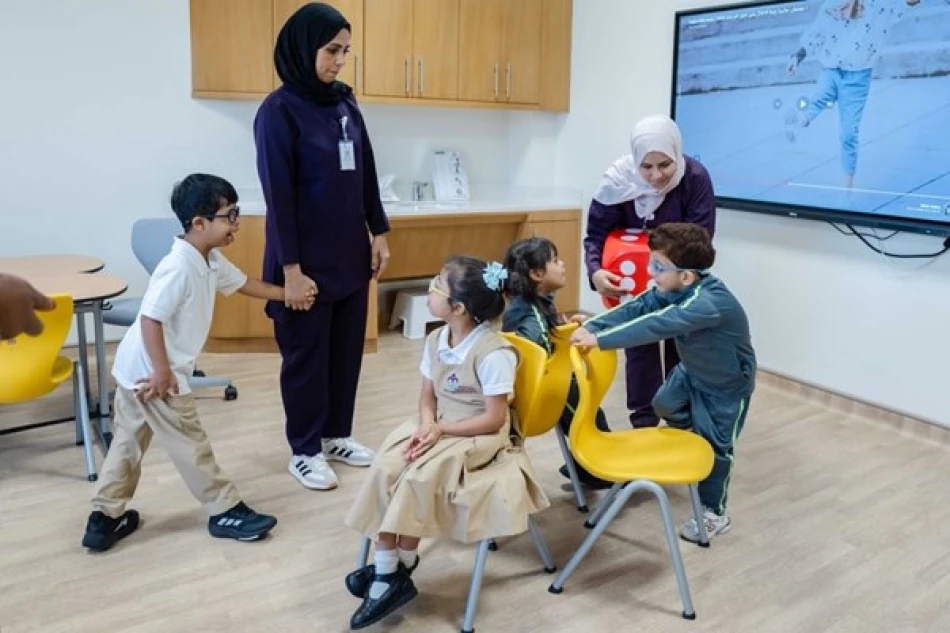
Global Conference 'We Embrace' Explores Legal and Regulatory Frameworks for Disability Inclusion
Sharjah to Host Major Global Conference on Intellectual Disability Rights and Legal Reform
The UAE emirate of Sharjah will host the "Global Conference 2025: We Are Inclusion" from September 15-17, bringing together international experts, policymakers, and advocates to reassess legal frameworks governing intellectual disability rights. The conference represents a critical moment for advancing inclusive policies that move beyond traditional humanitarian approaches toward comprehensive development strategies that recognize people with intellectual disabilities as active contributors to society.
A Strategic Platform for Policy Innovation
Organized by Sharjah City for Humanitarian Services under the patronage of His Highness Sheikh Dr. Sultan bin Muhammad Al Qasimi, Ruler of Sharjah, the conference will examine key international legal instruments including the UN Convention on the Rights of Persons with Disabilities and UAE Federal Law No. 29 of 2006. This focus on legal reform comes at a time when rapid technological and social changes are outpacing existing disability legislation worldwide.
The timing is particularly significant as governments globally grapple with implementing more inclusive policies post-pandemic, when digital accessibility and remote participation became essential rather than optional accommodations.
Beyond Charity: A Development-Centered Approach
The conference's emphasis on moving "beyond the humanitarian framework toward a comprehensive developmental vision" reflects a broader global shift in disability policy. Rather than viewing people with intellectual disabilities as beneficiaries of charity, the new paradigm positions them as economic contributors and decision-makers in their own right.
Economic Implications
This philosophical shift carries substantial economic implications. Research from developed economies shows that inclusive employment practices for people with disabilities can boost GDP by up to 7%. The conference's focus on "facilitating access to the labor market" suggests the UAE is positioning itself to capture these economic benefits while other regional economies lag behind in disability inclusion.
Regional Leadership in Inclusive Development
By hosting this quadrennial global conference, Sharjah is asserting regional leadership in disability rights—a strategic move that aligns with the UAE's broader vision of becoming a global hub for humanitarian innovation. The conference's comprehensive agenda covers education integration, family support, healthcare, community planning, and organizational capacity building.
This holistic approach contrasts sharply with more fragmented disability policies in neighboring countries and positions the UAE as a regional model for inclusive development. The conference's partnership structure, involving the International Inclusion Organization and local strategic partners, demonstrates the emirate's commitment to sustainable, locally-rooted solutions.
Global Context and Timing
The conference occurs as international disability rights movements gain momentum. Recent legislative advances in the European Union's Accessibility Act and similar initiatives in countries like Canada and Australia have created a global policy environment ripe for innovation. Sharjah's conference provides a platform for cross-pollination of these ideas with Middle Eastern contexts.
Technology and Accessibility Convergence
The conference's attention to "accelerating technological transformations" reflects growing recognition that artificial intelligence, smart city technologies, and digital platforms can either create new barriers or unprecedented opportunities for people with intellectual disabilities. The outcomes could influence how emerging economies integrate accessibility into their digital transformation strategies.
Implications for Policy and Practice
The conference's focus on "self-advocacy" and ensuring people with intellectual disabilities participate as "partners in decision-making" represents a maturation of disability rights discourse. This participatory approach, if successfully implemented, could serve as a template for other marginalized communities seeking greater political and economic inclusion.
For policymakers and development practitioners globally, the conference offers a unique opportunity to observe how traditional societies can adapt inclusive practices while respecting cultural contexts—a challenge that has stymied disability inclusion efforts in many developing regions.
The September gathering in Sharjah may well mark a turning point where intellectual disability policy shifts from accommodation to empowerment, with implications extending far beyond the disability community to broader questions of inclusive development and social justice.
Most Viewed News

 Layla Al Mansoori
Layla Al Mansoori






